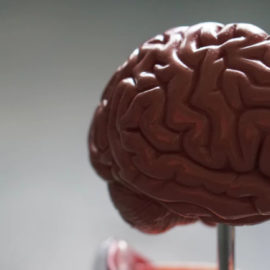
What are internal distractions? How does your personality determine how often you get distracted?
When your mental reserves run low, you’re vulnerable to attention-sapping pitfalls, some of which are internal and some beyond your control. According to Attention Span by Gloria Mark, your personality can make you more susceptible to getting distracted easily.
Continue reading to learn about the internal distractions that are ruining your ability to focus.
The Trap of Internal Distractions
It’s easy to point the finger at external triggers such as the internet, social media, and other people infringing on your time. However, some of the blame for mismanaging your brain’s resources must be laid at the feet of some common psychological fallacies. Mark says these internal distractions include:
- Misjudging how long the task you’re doing will take
- Devoting too much time to simple tasks instead of prioritizing harder tasks
- Following through on unproductive work because you’ve already put so much time into it
(Shortform note: The list of fallacies Mark provides can all be boiled down to making poor predictions of what’s the best use of your time. In The Signal and the Noise, Nate Silver explores the specific mental errors underlying poor predictions. They include faulty assumptions based on incomplete data, overconfidence in our beliefs, and unconscious biases in your thinking. For instance, you might underestimate how long a task will take because you’re not aware of some complicating factors, or you might dawdle on easier tasks while assuming it’s safe to put off the hard ones. Mark might suggest that when it becomes clear you’ve made such mistakes, you’re likely to turn to distraction to avoid dealing with their consequences.)
Mark’s research also shows that various aspects of your personality can contribute to how and why you get distracted. For instance, people who worry a lot and those who tend to be impulsive have consistently shorter attention spans when performing tasks on a computer—they frequently interrupt themselves by switching from app to app and screen to screen. On the other hand, people who are highly diligent in their work also suffer from internal distractions—they don’t mean to be unproductive, but they’re more likely to be constant email checkers, always on the lookout for important messages and responding right away, which disrupts their workflow.
(Shortform note: If you fall into one of these categories, don’t assume that you have to change your personality—that may prove hard or impossible. Instead, as Timothy A. Pychyl writes in Solving the Procrastination Puzzle, you can simply pay attention to the traits you have and how they make you prone to distraction; then, decide how to change your response to distractions. For example, you might counter compulsive email checking by reminding yourself that the vast majority of emails you get don’t require a quick response. However, Pychyl warns that you can’t rely solely on willpower to overcome your natural reactions, so you should plan activities in your day to recharge your mental batteries.)






